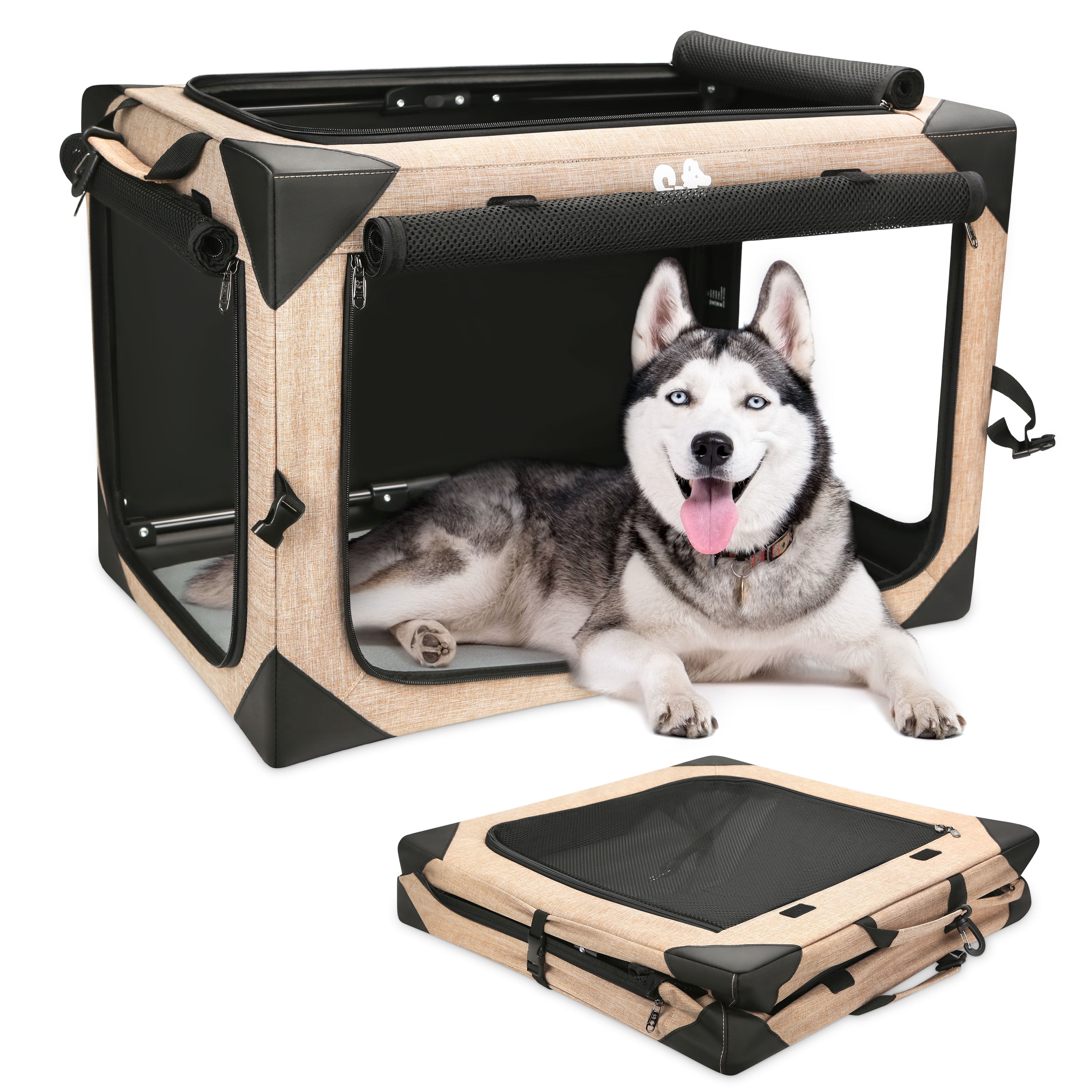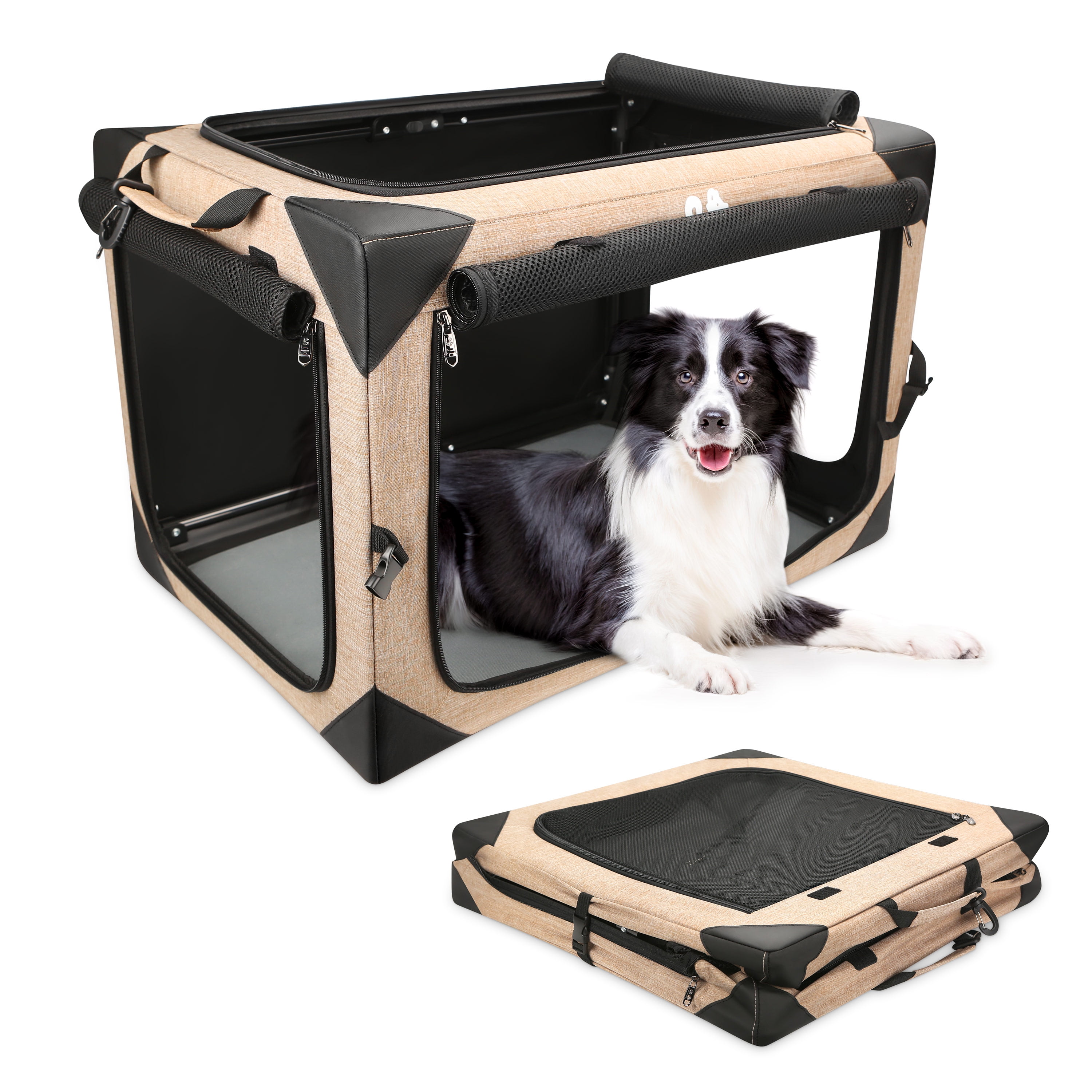












Soft-Sided Dog Crate Quick Portable Folding Washable Kennel for Large Breed
$57.57 ( In Stock ) ( left ) ( out of stock )
-
Description
Crate training offers a variety of benefits. The crate is a useful training tool to help teach housetraining skills, manage over-arousal, and protect against unwanted destruction when owners are unable to supervise an untrained dog of any age. A crate-trained dog always has a familiar retreat to call his own, whether at home, when traveling, or while waiting his turn at a weekly training class or performance event. Virtually any soft crate is going to come out on top in terms of portability when compared to a traditional plastic crate, collapsible wire crate, or exercise pen. By design, soft crates weigh considerably less than plastic or wire crates of a similar size. Generally speaking, they also tend to fold flatter than collapsible wire crates. Each of these factors combines to make them a great choice for dog owners who need to frequently set up and break down their crates. A soft crate also works well for home-based situational crating. The small footprint when folded makes it easy to tuck the crate away in a closet or under the bed, if you only use it occasionally, such as when certain visitors stop by when restricting a dog’s activity as she recovers from an injury, or when traveling.
-
reviews
{{review.author|getFirstChar}}
{{review.author}} on {{review.pub_time}} {{review.title}} {{review.content}} {{ text }} Write ReviewScore*{{reviewStar}}Your Name:please enter your nameYour Email:please enter the right EmailReview Title:please enter titleReviewplease enter your review
